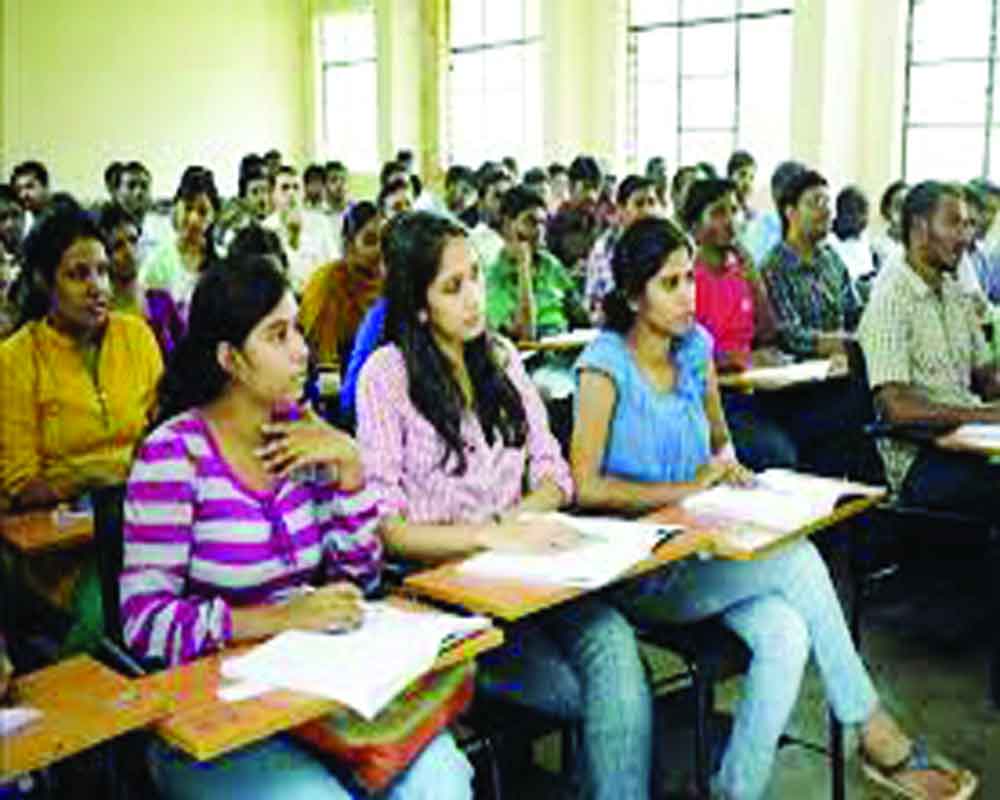While promoting local languages in higher education aims to increase inclusivity, it may also pose challenges to the quality of education
The debate of whether education should be imparted in English or a regional language has been actively rhyming in our post-independent society. It’s true that as a nation we have to preserve our rich culture and tradition, but at the same time, we need to equip our present generation to take up the challenges in the future, like space age and AI.
During colonisation, English was forced on us to make the jobs of foreigners easy. In that process the foreign rulers who ruled our land even learned native languages, sometimes better than native Indians, to understand our rich scientific knowledge. Because of this, they were able to produce scholarly works about Indian Knowledge Systems better than native Indians. This has also helped the world recognise Indian Knowledge in the long run.
On the slip side, the dominance of English has badly affected the status of many native languages. The British educational reforms prioritized English-medium instruction, particularly at the higher levels. This led to a situation where proficiency in English became synonymous with access to power, jobs, and social mobility. Many educated Indians, especially in urban areas, began to adopt English as their primary language, sidelining regional languages. This created a linguistic divide between the English-educated elite and the native-language speaking masses.The historic NEP 2020 envisioned reorienting our attention to regional languages in the education system. Unfortunately, its focus on nurturing local language in science and technology education has become problematic because of hyper activism. Many states are involved in the translation of science, engineering and medicine textbooks into regional languages.
Though these will serve as a valuable document to preserve our languages, they won’t help in improving the quality of higher education.
Even before NEP, in many state universities, there was a provision to write science in their regional languages. But there were few takers for that. Even today when we make propaganda to promote regional languages, it’s not implemented uniformly. All these policy changes, good or bad, will affect only students studying in public sector institutions.
Unfortunately, none of the children of our government servants politicians’ or even activists study in these public sector educational institutions, so they are not concerned about whether it will improve quality or not. So all this language love is ‘only for others, not for me’.
This culture is again creating a linguistic divide in our society, which the British did to us long before.Whether we like it or not, English is the only language that acts as a bridge connecting various sections of our country. And in higher education, especially in science and technology courses where information is gathered from the knowledge generated in other countries, it has become the only language of that can connect us with the global knowledge hub.
How we can generate good engineers or scientists if they are not competent to understand English? Will be there any takers for an engineering or science course if offered in a regional language? How will our future youngsters survive in an AI dominated digital world where English is thelingua franca for the global workforce? How will they survive in a space colony? English is undeniably the global language of science, technology, and research. Most cutting-edge scientific papers, engineering manuals, and international patents are published in English.
Though a bilingual mode of education can be adapted to teach complex scientific facts, totally neglecting English from our higher education will be a death trap for our science and technology. Unnecessary language chauvinism will erode the quality of higher education.
(The author is the Academic affairs, Garden City University and adjunct faculty at NIAS, Bangalore, views are personal)


























